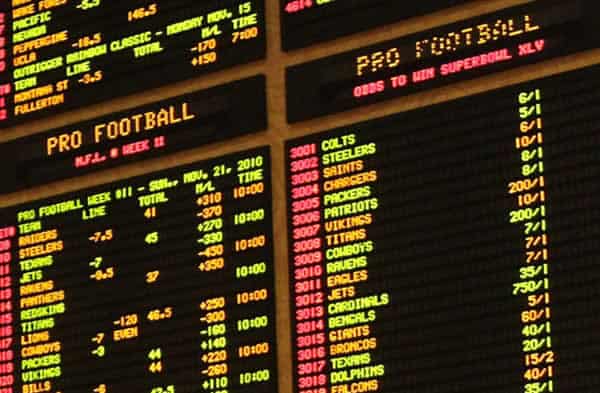June 2018 is a month that may change US gambling laws and the course of history. The United States Supreme Court is expected to give a ruling on the infamous Christie vs NCAA case in which the then New Jersey governor sought to strike down a Federal ban against sports gambling by challenging it. The Federal ban also known as PASPA does not permit gambling on sports activities and events outside of pari-mutuel horse betting and only select grandfathered states such as Nevada, Montana, and Oregon may allow certain forms of sports betting, except Las Vegas where full-blown sports wagering is 100% legal.
Many states began to speculate that the Judges would rule in favor of New Jersey’s stance and declare PASPA unconstitutional and therefore began to craft their own contingent sports betting legislations. At the moment, states are creating the framework for licensing and regulating sports wagering activities within their state lines and are hoping to unleash the new gaming offer by summer.
One midwestern state, in particular, has proposed to preemptively authorize sports betting contingent on a favorable ruling for legalized sports wagering. The state of Indiana has gone on to prepare their facilities for the additional gaming offer at a number of their state-casinos, riverboats, racinos, racetracks, and satellite facilities. Indiana currently has two versions of their legal sports wagering bill, one from the House and one from the Senate.
The House bill contains an integrity fee as proposed by pro sports league lobbyists, while the Senate’s does not. Although the Indiana House can claim they are utilizing the input of pro sports leagues like the NBA many have pointed out that such a fee, which would ask states to turnover 1% of wagers (handle not gross revenue) to each sports league’s governing body, would be highly inappropriate. Both versions of the bill however, do include provisions for licensing and regulating mobile and online sports betting.
Other states such as Pennsylvania and Connecticut enacted narrower measures contingent on the legalization of sports betting in late 2017. Ohio and Kentucky have proposed extending the authority of existing commissions and boards which oversee gaming, racing, and charitable activities to include sports wagering activities under their scope. States like Minnesota, California, Illinois, Iowa, West Virginia, Maryland, and New York each have crafted their own preemptive sports betting legislations as well.
Some consider the integrity fee issue ironic as the MLB and NBA were known to be part of the big five (NCAA, NFL, NHL, MLB, NBA) who would vehemently lobby against any form of expanded legal sports betting for years, yet now in the face of impending change wish to be involved in creating sports betting frameworks and taking their cut. Many suggest that this is really in the best interest of the NBA and MLB as they attempt to take a cut of the overall action while creating a nationwide model every state can adopt to provide each league with their fee. The leagues argue that the integrity fee will assist in ensuring games and bets are being fairly conducted fairly and will aid in financing the compliance and enforcement needed to maintain it such conduct.
However, many sports enthusiasts, talk show hosts, and even lawmakers are skeptical on said justification. Famous comments on the issue come from avid sports fan and national sports radio host, Scott Ferral, who identifies potential conflicts of interest when leagues like the NBA work closely with local state legislators as pro sports leagues may gain the ability to potentially take advantage of state lawmakers who have minute experience in the subject of sports wagering. Scott Ferral also stated that pro leagues like the NBA are ludicrous for asking for 1% on the handle and continues by mentioning that internationally no one is given integrity fees and that asking for such from each state is ridiculous.
Other leagues such as the NCAA clearly oppose sports wager legalization, but some predict they will settle for a carve out if worse comes to worse. Currently, the NFL has made no comment on the subject of lobbying for or against sports wager legalization and the NHL has made minor input and impact on the issue due to its minimal following in the US. However, another unexpected factor threw themselves in the mix of it all as the subject rose around the dealing with an already legal form of sports betting, Daily fantasy Sports. DFS was created through the PASPA prohibition as a legal avenue for sports fans to wager, however, the events are fictional and only rely on player stats and team combinations.
PASPA opened the door for DFS and some say DFS will go with it once it is struck down. However, in light of this issue one DFS operator, Draftkings, publicly commented on a proposal to change themselves into a sportsbook contingent on the outcome of the Supreme Court’s decision which in turn would allow them to capitalize on their existing customer base and established brand recognition. Eighteen states are currently on trajectory to introduce regulatory sports betting bills this year, while it is predicted that only twelve states have a good chance of enacting those laws and policies.

